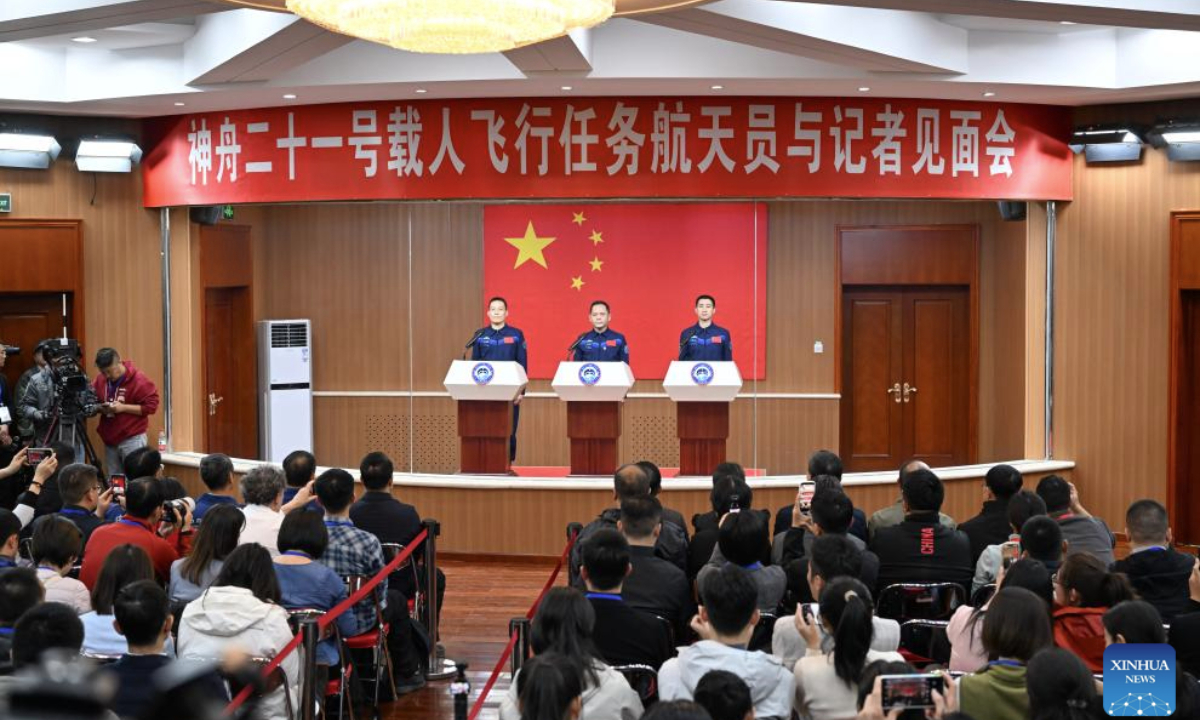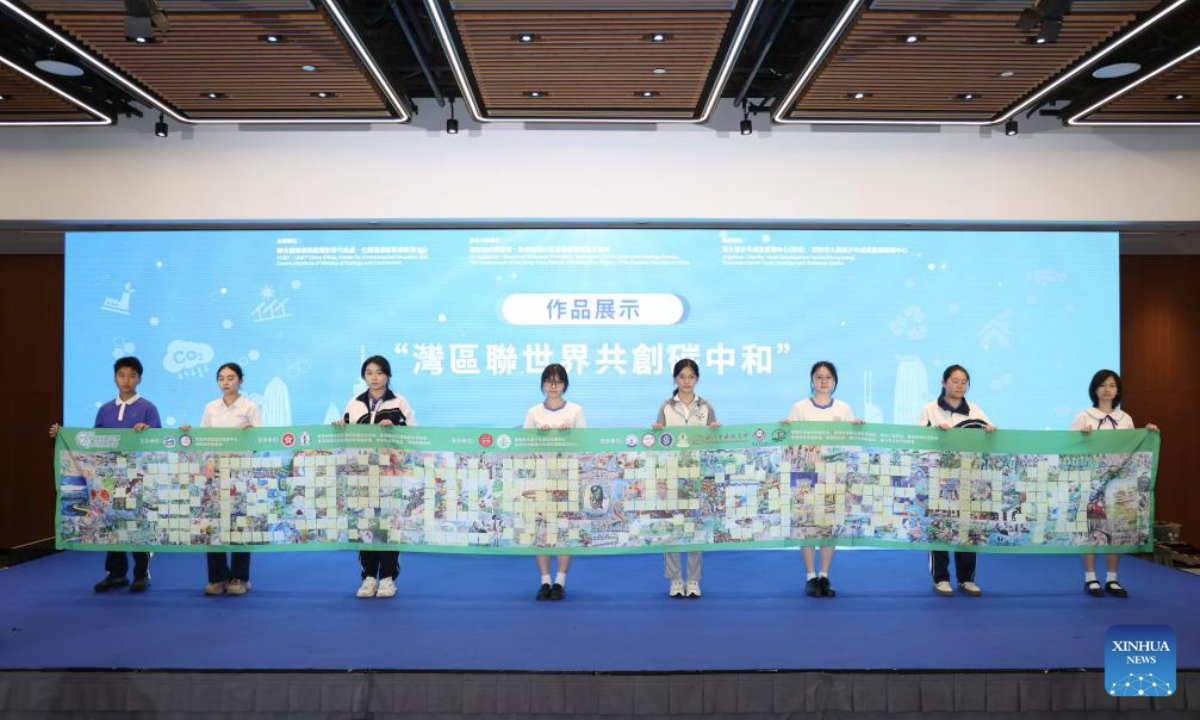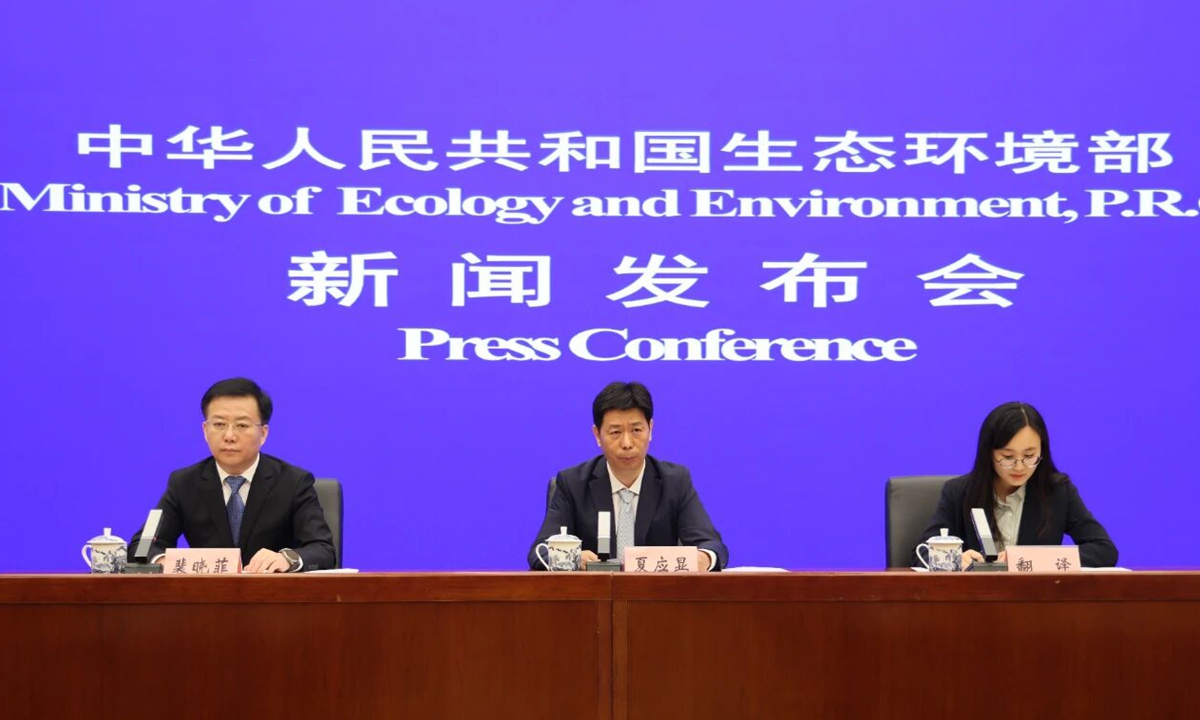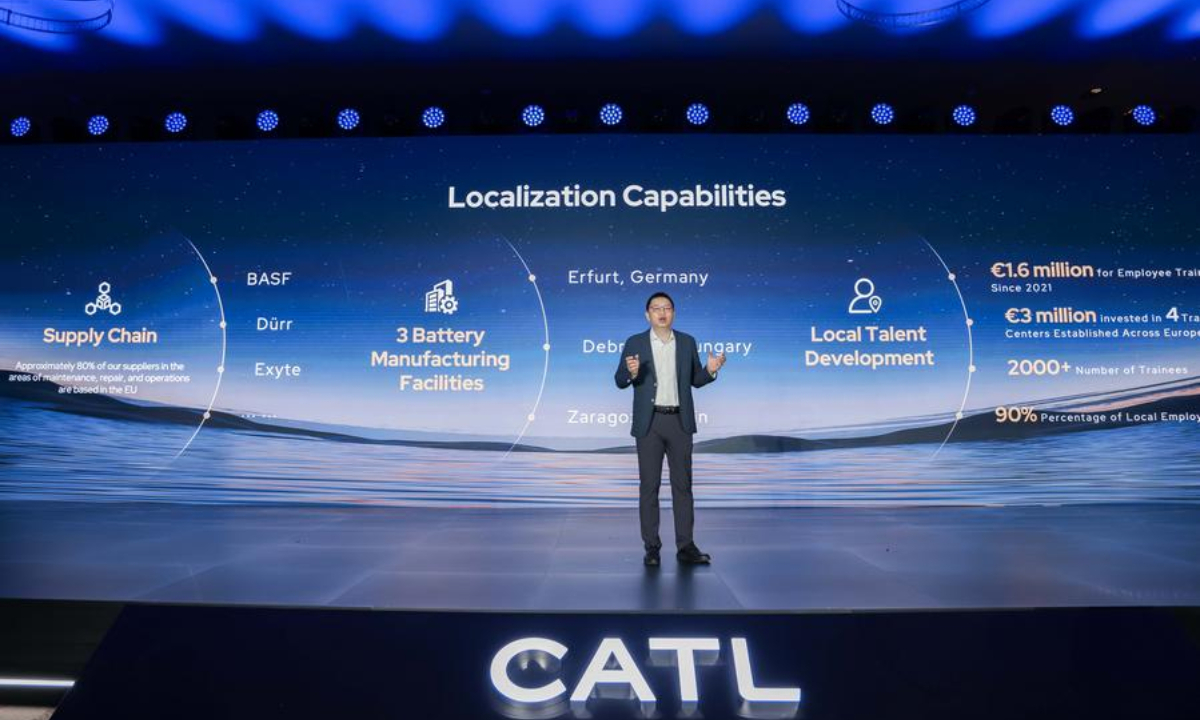In its nationally determined contribution (NDC) announced in October, China set the goal of basically building a climate-resilient society by 2035. This demonstrates China’s firm determination and sense of responsibility as a major country in addressing climate change, serving as the fundamental guideline and roadmap for its climate adaptation efforts, an official from Ministry of Ecology and Environment of China (MEE) said on Wednesday.
The 30th Conference of the Parties (COP30) to the United Nations Framework Convention on Climate Change will be held in Belém, Brazil, from November 10 to 21. Climate adaptation will be one of the key topics of discussion at COP30.
The world today is experiencing climate change characterized by significant warming. Extreme weather events such as heatwaves, cold snaps, heavy rainfall, and sudden shifts between drought and flooding are occurring with increasing frequency, intensity, and simultaneity, Xia Yingxian, director of the MEE’s climate change department, said at a press conference on Wednesday.
These events pose serious threats to the safety of people’s lives and property, as well as to economic and social development in countries around the world, including China. Adapting to climate change has therefore become an urgent priority, said Xia.
Earlier, the MEE, together with 16 other ministries and commissions, jointly issued the National Climate Change Adaptation Strategy 2035 to build a climate-resilient society, and set out the goals, principles, and key tasks for China’s climate adaptation efforts.
Xia said that under the guidance of this strategy, various departments and regions have taken active steps to continuously advance key tasks related to climate change adaptation and achieved tangible progress.
So far, all 31 provincial-level regions across the country have formulated and put into trial operation their local implementation plans, while 39 cities are carrying out pilot programs to further develop climate-resilient cities. At present, China has established a coordinated framework that advances climate adaptation through national strategies, provincial actions, and urban pilots in tandem, said Xia.
In April this year, the Ministry of Ecology and Environment, together with the China Meteorological Administration, jointly issued guidelines for Climate Change Impact and Risk Assessment. The guidelines clarify the methods and reference indicators for assessing climate hazards, exposure, and vulnerability, providing scientific guidance for local authorities to take appropriate adaptation actions based on their assessments of climate impacts and risks.
The MEE has also released the China Climate Change Adaptation Progress Report for two consecutive years, systematically outlining the country’s climate conditions and progress in climate adaptation, said Xia.
The reports emphasize risk assessment and awareness-raising as the foundation for strengthening adaptation actions. Meanwhile, China has been actively promoting international cooperation on climate adaptation and is committed to supporting other developing countries in enhancing their capacity to prevent and manage climate risks, according to the MEE official.
Xia said that the MEE will continue to advance the implementation of the National Climate Change Adaptation Strategy 2035, strengthen overall coordination, innovate institutional mechanisms, and enhance the assessment of climate impacts and risks.
Efforts will also focus on improving the effectiveness of adaptation actions, bolstering climate resilience in key sectors and regions, and continuously enhancing China’s overall capacity to adapt to climate change—making further contributions to building a climate-resilient society and advancing global climate governance, said Xia.
Ana Toni, CEO of COP30 Climate Change Conference, told the Global Times during a previous interview that what is “really wonderful about China, it’s a commitment to the system,” which gives the entire world a lot of security, when some other countries are less committed to the international system.
China is doing its best, reducing the prices of green technologies and helping other countries absorb them… So let us try to work together…so that we can accelerate the action, Toni added.









